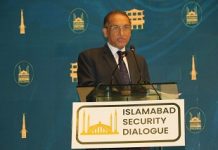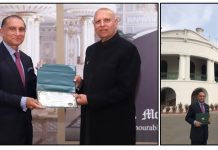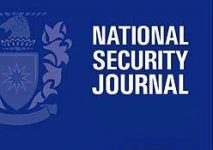Pakistan-Russia Strategic Relations: Prospects for Cooperation
Seminar organized by Strategic Vision Institute
27 March 2019
Global context:
- Transition to a new world order. New Cold War, Russia and China re-orienting to new alignments and positioning for a bigger stake in the world order.
- New Arms races. Russian understandings with the US collapsing. India, Israel, several others also in regional arms races.
- The US embarked on Indo-Pacific Strategy, with central role assigned to India. The moves are largely perceived as a strategy to counter China.
Regional context:
- ME remain embroiled in conflict. Russia has played its card well in retaining and increasing its influence in the ME. In most situations, the US and Russia are on opposite sides.
- South Asia. US deepening its partnership with India. Yet, Russia and India maintaining their traditionally close ties.
- In Afghanistan, Russia appears skeptical of US intentions but is ready to support the ongoing efforts for peace.
Status of Pakistan-Russia relations in recent years
Pakistan-Russia relations are a perfect fit to test the maxim that there are no permanent friends or foes in international relations. The former Cold War rivals are undergoing a sort of rapprochement since early 2014, however, the uptick is more pronounced in terms of defense and strategic cooperation. In this regard, mentioned below are some of the highlights:
- In 2014, Pak-Russia Defence Cooperation Agreement was signed and this development was hailed as a landmark achievement in bilateral relations. In this agreement, the two countries agreed to provide exchange of information on politico-military issues, promotion of international peace and security, cooperation in the field of counter-terrorism and arms control, and strengthening military-to-military ties in various fields such as education, medicine, agriculture, hydrography, topography, history and sharing experiences in peacekeeping operations.
- In 2015, Pakistani Army participated in Russian Army War Games along with China, Belarus, Venezuela and Egypt.
- In 2015, the two countries signed a US$153 million contract for Mi-35 assault helicopter. This deal was concluded in 2016 when Chief of Army Staff (COAS) Gen. Raheel Sharif visited Moscow and, in 2017, Russia delivered the assault helicopters.
- In 2016, another landmark was achieved when the first-ever joint military exercises were held. Dubbed as Druzhba-2016 or Friendship 2016, the joint military drills were aimed at developing cooperation between the ground forces, improving tactical abilities and establishing a solid foundation for future interactions. These joint military exercises are being held annually between the two armies: Friendship 2017 and Friendship 2018 were held in 2017 and 2018 respectively.
- In 2018, Moscow and Islamabad joint naval exercises were conducted in the North Arabian Sea to promote their joint cooperation capacity.
Why did the Russia Pakistan relations take an upturn in 2014?
- US tilt towards India raised questions in Moscow. Russia did not pull away from India but opted for a more balanced approach towards South Asia.
- Afghanistan. Instability in Afghanistan allowed safe havens for many of the terrorist groups hostile to Russia and Central Asian states which Russia considers as its area of influence. Russia wants to work with Pakistan to bring Afghan-led peace in Afghanistan. Further constant flow of drugs out of Afghanistan is another shared concern.
- In 2013, Pakistan and China entered into a mega connectivity project, CPEC, which Russians and Central Asians also find a useful possible conduit to Indian Ocean.
- With Russia getting closer to China, and both agreeing to include Pakistan and India into SCO, it made sense for Russia to develop good relations with Pakistan.
Why the relationship is not growing fast enough?
- India has been a limiting factor in Russia’s relations with Pakistan. Russia does not want to completely shift away from its traditional ally India. India is still a large importer of Russia’s weapons and Pakistan cannot offer Moscow as much a big market as New Delhi can.
- The relationship is not broad-based. Economic relations could not take off. Russian President cancelled his promised visit to Pakistan in 2012 and sent instead his foreign minister. The reason. Lack of economic substance. A longstanding economic dispute led to a freeze in Russian assets (worth $120 million) in Pakistan. Efforts to resolve this dispute have remained pending. The North South gas corridor that was agreed in 2015 and was to be completed by 2018 is still in limbo. Disagreements over the transit tariffs is the reason for the delay (Rosatec Corporation has revised the tariffs downward twice but no consensus yet).
- Pakistan’s fight against terrorism is well appreciated by the Russians. However, Russia has concerns on the presence of violent non-state actors in Pakistan. Its sensitivity is mainly on account of Islamist groups of Chechnia and Muslim population of Russia.
============












